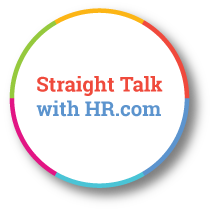‘Companies Must Ensure Their Pay Practices Are Equitable And Transparent’
Posted on 05-30-2023, Read Time: 5 Min
Share:

Highlights
- Understand the persistence of pay inequity despite existing laws and the impact on gender discrimination.
- Explore additional legal measures like pay transparency and equity legislation to eliminate gender pay gaps.
- Gain practical strategies for conducting pay equity audits and promoting a culture of equality.
More than a decade later, Goldman Sachs, one of the world’s largest investment banks, finally agreed that it discriminated against its women employees in pay, performance evaluations, and promotions. The Wall Street bank's $215mn settlement should be a lesson to other companies who overlook gender and equity discrimination happening in their workplaces.
 |
In an exclusive interview with HR.com, Olivia Cicchini, Legal Specialist at Peninsula Canada, touches upon what employers must do to maintain compliance with pay and gender equity and how to identify instances of discrimination and promote a culture of equality in the workplace, among others. |
Excerpts from the interview:
Q: Why do companies continue to discriminate between genders in pay despite stringent laws and regulations?
Olivia: Pay inequity is an issue because jobs typically held by women are often paid less than typical “male” jobs. This further contributes to the gender pay gap wherein women experience pay discrimination due to the nature of their work.
Q: What additional legal measures can effectively eliminate pay inequity and gender discrimination in the workplace?
Olivia: Pay transparency and equity legislation have emerged as leading ways for employers to be publicly held accountable for their actions. Pay transparency laws aim to identify and address pay discrimination by placing obligations on companies to include information about pay in job ads, prohibiting questions about pay history from job applicants, and forcing larger organizations to produce annual pay transparency reports.
Q: What should be the takeaways for organizations from the recent Goldman Sachs case?
Olivia: The main takeaway from this case is that all companies, regardless of size, must ensure compliance with applicable human rights and employment standards legislation when determining pay, performance evaluations, and growth opportunities.
Employers must ensure they are dishing out raises and promotions based on merit and experience, not sex, gender, or other potentially problematic grounds. For example, awarding additional benefits to employees who take fewer personal or vacation days during the year can be indirectly discriminatory toward women who may have taken time off to care for children or an elderly family member.
Employers must ensure they are dishing out raises and promotions based on merit and experience, not sex, gender, or other potentially problematic grounds. For example, awarding additional benefits to employees who take fewer personal or vacation days during the year can be indirectly discriminatory toward women who may have taken time off to care for children or an elderly family member.
Q: How can employers proactively identify and address potential gender-based pay disparities in their organizations?
Olivia: To identify and address gender-based pay disparities, companies should ensure their pay practices are equitable and transparent, encourage female staff to negotiate their pay and ask for raises, reassess their recruitment and hiring processes, confirm male employees are utilizing their annual vacation, and parental leave entitlements, and conduct frequent pay equity reviews and audits.
Q: What steps can human resources (HR) departments take to promote a culture of equality and prevent gender discrimination in the workplace?
Olivia: HR can adopt many of the above-noted practices. However, it must also consider putting a diversity, equity, and inclusion committee and associated company policy in place, having more women in managerial and leadership positions, and providing frequent employee training on workplace violence, harassment (including sexual harassment), bullying, and ensuring staff returning from maternal and parental leave are placed in a comparable position with the same benefits and pay as before.
Q: What are some effective strategies for conducting pay equity audits and analyses?
Olivia: Before conducting a pay equity audit, employers must collect all necessary data, including a list of their employees’ sex/gender, salaries, job descriptions, benefit entitlements, etc. After the information has been gathered, the company should group the data into job classes comprised of positions with similar duties and pay to see which ones are considered predominately “female” or “male.” This information can then be compared to see if wage gaps exist amongst traditionally female or male jobs. After identifying the gaps, the company can consult its diversity, equity, and inclusion committee to address the issues.
Error: No such template "/CustomCode/topleader/category"!

